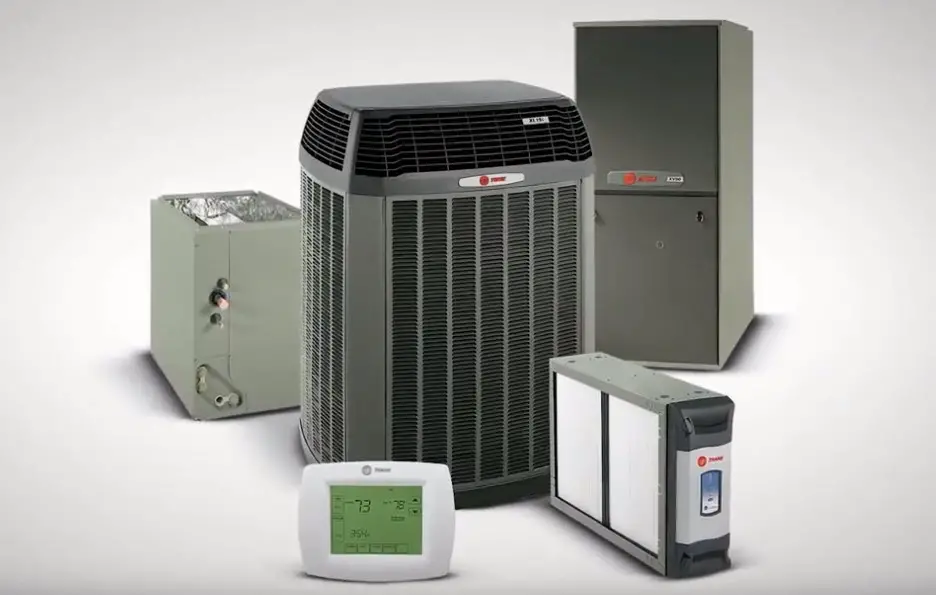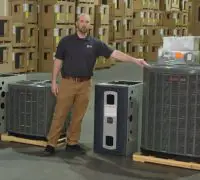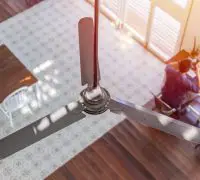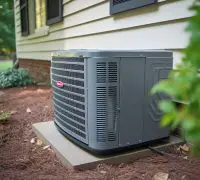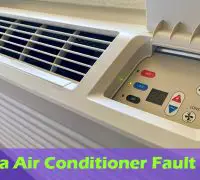Some people call Trane air conditioners the “Cadillac of AC units,” and it’s definitely because Trane is one of the most trustworthy brands in the business. Trane is a reputable company that is an expert in developing cooling, heating, and humidity systems. They provide clients with a wide range of cooking and heating equipment, central AC systems, replacement furnaces, and multi-split AC units. Well known and highly appreciated, Trane is the synonym for high-end air conditioning systems worth every penny.
If you’re thinking about buying an air conditioner, you must consider several aspects. Manufacturer rebates, tax credits, and special offers are ways to cut down installation spending. Take advantage of flexible financing possibilities. We also recommend hiring a licensed dealer to assess your house and find the best system for your household’s needs and your budget.
Page Table of Contents
What matters when buying a Trane air conditioner
The essential elements that impact the Trane air conditioner that suits your house the best come next:
Climate and region
It’s essential to consider the climate and region you live in because they count for saving energy. The DOE efficiency standards revealed that the same size house from the southern half of the United States would need a more extensive air conditioning system than the same size house in the north of the United States. Needless to say, a home from the northern half of the United States will require a more extensive heating capacity system than a similar house in the south.
Current ductwork in your house
The ductwork in your home is essential to improve your comfort while reducing energy use. Ductwork refers to the air distribution system in your home that takes heated or cooled air. The ducting is crucial for the level of comfort in a house room to room. As long as it’s correctly thought out and installed, the duct system will increase comfort and reduce energy use.
If you need to replace the current ductwork, you should also upgrade the ductwork—it will improve the efficiency of the air conditioning system. You can pay anywhere between $3,000 and $10,000 for new ductwork. The size of the ductwork project, the unit, the system, and the amount of labor and materials used will impact the final cost for the new ductwork. With experienced and skilled installers, replacing ductwork shouldn’t take more than days.
The house’s construction
Regardless of what some of you think, the house’s foundation is crucial for heating and cooling the home. A place with proper insulation on the doors, windows, roofs, walls, basements, floors, and crawl spaces and sealing at the exterior seams and cracks will need less heating and cooling capacity than a house with poor insulation. If your home is large, you will need to buy a large unit or several systems. Be ready to have a generous budget!
The complexity grade of the project
It goes without saying that a challenging installation project will cost more than a basic and simple one. The more details your project, the more it will cost you to install the air conditioning system. However, every detail will count for the system’s efficiency. A difficult-to-access space for the space, the need for additional installation and custom parts, a historic house that needs retrofitting—these are all details that make a project challenging. It will reflect on the final cost for the installation.
Special features
Adding improvements such as a climate zone with a Trane Clean Effects Air Cleaner or ComfortLink II Zoning System will increase the installation bill. The extra features count for your comfort and are worth every penny. Also, a system with a high SEER rating will be more expensive than one with a lower SEER rating, but the first will result in lower energy bills.
Aspects to examine
Here are some elements to examine before making a purchase:
Energy efficiency
Air conditioners will use energy to operate, just like any other home appliance. Some models will use less energy than others and obtain the same results. The Seasonal Energy Efficiency Ratio (SEER) helps you see the air conditioner’s energy efficiency. SEER ratings go from 13 to 22; the higher the rating, the higher the efficiency (lower energy spending). Any SEER of 16 and above is considered to be high efficiency.
Sound level
You don’t want your air conditioner to disturb you or your neighbors. It’s a crucial aspect to consider, especially if your house is in an area with strict noise limits. If we talk about air conditioners, elements such as fans, motors, and cabinet insulation will reduce the noise levels. Check out the decibels on the air conditioner before buying. The lower the number, the quieter the unit is.
Value
You want to buy a system that will efficiently perform for the longest time. With Trane air conditioners, it’s not the price that gives the value. Trane is a company that focuses on high-efficiency ratings and gives clients systems with industry-leading technology and innovations.
Is there a difference between AC and HVAC?
Before buying what you really need, you need to know the difference between cooling and heating. Even if HVAC and AC are related, they’re not the same—as some clients believe them to be.
AC is short for air conditioning or air conditioner. An air conditioner is an appliance that cools a house. In most households, the air conditioner is a part of the central AC cooling system.
HVAC stands for heating, ventilation, and air conditioning. HVAC is a general term that includes the whole heating and cooling system.
Why work with an HVAC dealer
Unless you know everything about heating and cooling systems, you will need professional assistance before choosing your air conditioning system. An HVAC dealer doesn’t just sell and install new systems so that they perform at their best. They are the primary and reliable sources to navigate you through the many options.
Whether you have pets, live in a hot climate, or have asthma, the HVAC dealer will help you identify the best air conditioning system for your needs, household specifics, and budget. He will do his best to find the system that gives you the best comfort for your budget.
